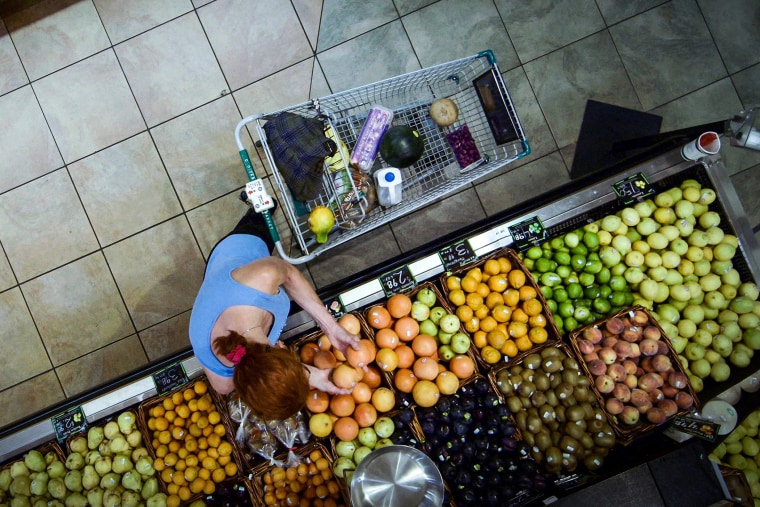It's long since faded from the public debate, but as the Bush/Cheney era neared its end, the American public was confronted with some major food-safety controversies. As regular readers may recall, after consumers purchased, among other things, tomatoes with salmonella and spinach with E. coli, Rick Perlstein coined the phrase "E. coli conservatism" in response to lax governmental regulations.
Those policies didn't last. In 2010, President Obama and the Democratic-led Congress approved a sweeping overhaul of the nation's food-safety system, expanding the FDA's ability to recall tainted foods, increase inspections, demand accountability from food companies, and oversee farming. It was the biggest effort on food safety in more than 70 years, all in the hopes of preventing unsafe food from reaching consumers' tables.
Congressional Republicans have pushed for years to scale back those food safeguards, and as of yesterday, Donald Trump made clear he intends to do exactly that if elected.
In a fact sheet Thursday, the campaign highlighted a number of "specific regulations to be eliminated" under the GOP nominee's economic plan, including what they called the "FDA Food Police." Of particular interest, the Trump campaign complained about FDA rules on issues such as inspections of food facilities, the temperatures at which food is stored safely, and "farm and food production hygiene."
In other words, under a Trump administration, federal officials would oversee food safety from the perspective that, when it comes to food production, there's too much focus right now on safety and hygiene.
The good news is, if you don't eat food, you have nothing to worry about. Everyone else, however, should probably take note.
As we discussed last year, when your family sits down for dinner tonight, you probably won't pause to think, "Is this food safe?" because, in the back of your mind, you'll assume there's an effective system in place enforcing certain safeguards. In general, those assumptions are sound -- because there is an effective system in place.
But what if those safeguards are weakened because congressional Republicans are looking to cut spending and a President Trump disdains the "FDA Food Police"?
Postscript: Trump's team originally published its plan online here, but by yesterday afternoon, the content had been removed without explanation. There are nevertheless screen-grabs of the campaign's new agenda as it relates to food safety.
